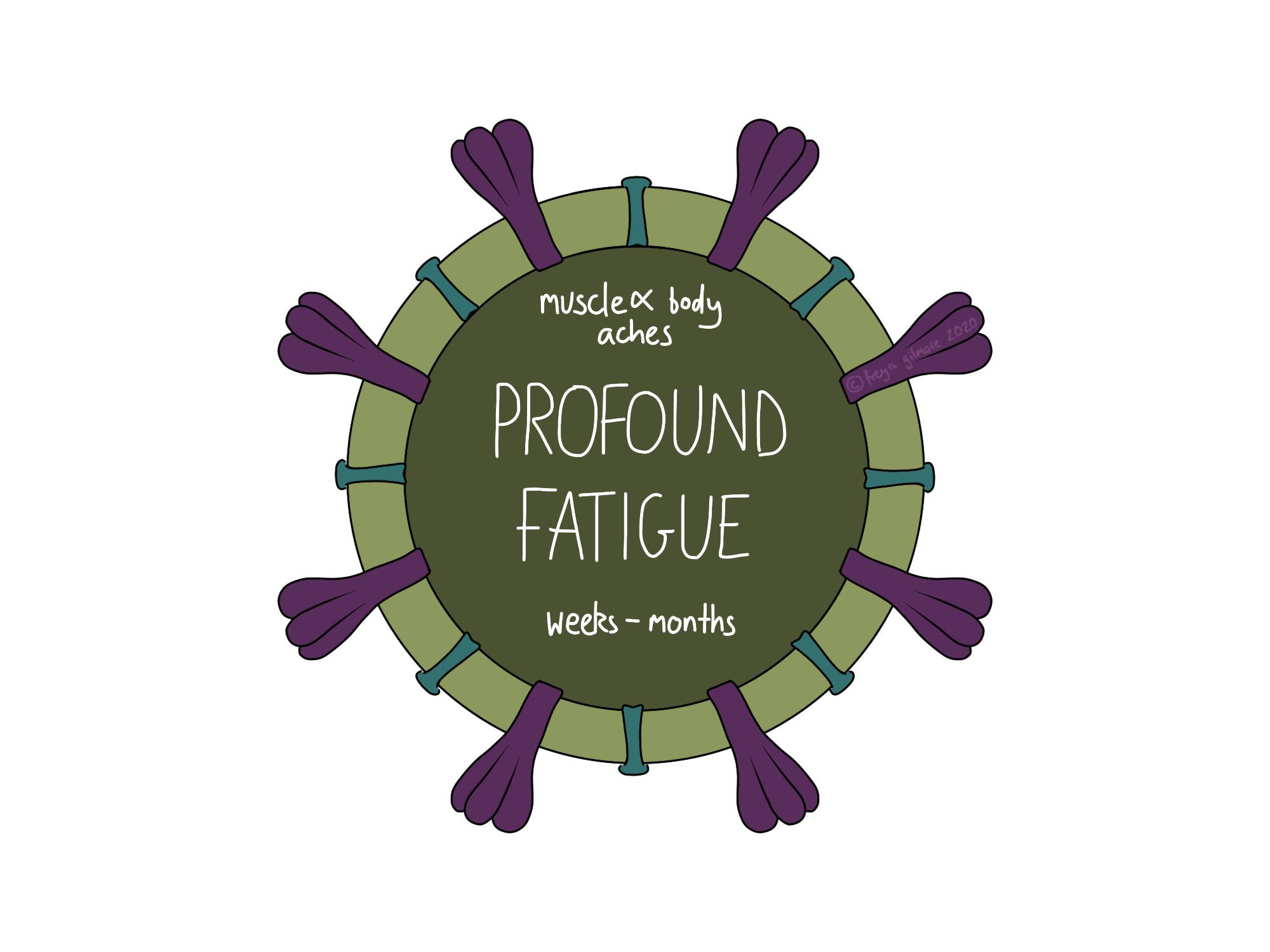11 November 2020
Long Covid

Long Covid has an emerging evidence base and information is changing quickly. This post was last updated on 15th February 2021
For most people who contract COVID-19, symptoms will resolve within a couple of weeks. For others, feelings of fatigue and general unwellness persist for weeks to months. If these continue for over 8 weeks, it may be "Long Covid".
What is Long Covid?
Not much is understood about Long Covid (LC), but researchers are spotting some trends.
After the initial symptoms of covid subside, LC patients are left with a relapsing and remitting set of symptoms. Fatigue is one of the more prevalent ones. One important part of the definition is that LC is not the same as having lasting effects from a severe case, such as lung damage.
An estimated 5% of people who contract COVID-19 will show symptoms of Long Covid up to 8 weeks later. It is more likely to affect the groups below:
- Older people
- Women
- People with a high BMI
- Patients with asthma
- People who had more symptoms in the first week of their infection, and milder symptoms overall
Symptoms
Long Covid seems to present as a relapsing, remitting collection of symptoms, including:
- Significant fatigue
- Muscle and general aches
- Cough and breathlessness
- A heavy feeling within the chest
- Headache
However, not everyone with LC will have these respiratory symptoms. Others have a more systemic picture, with the brain, gastrointestinal system, and heart affected.
Diagnosis does not require a covid test, but does require symptoms to extend beyond three weeks duration.
Similarities to other conditions
Fatigue and cognitive symptoms, such as a difficulty concentrating that patients may describe as "brain fog" shows similarities to other conditions.
ME, or Chronic Fatigue Syndrome is another poorly understood condition, but there are theories that it may be triggered by a virus. The ME Association recognises the above similarities.
Fibromyalgia has further overlap with ME. Lymphatic drainage techniques have been shown to improve symptoms of fibromyalgia.
What we know about managing Long Covid
Evidence for management is limited and still emerging. NICE guidelines recommend a multidisciplinary approach.
The British Medical Journal has published an article offering guidance for management of LC. It recognises the importance of holistic care, as the symptoms are so wide reaching. The researchers point to the benefits of breathing exercises to improve breathlessness. They also highlight the importance of a graded return to exercise- a management strategy that osteopaths already use in daily practice.
Another BMJ article recognises the pressure on GPs from LC patients. It mentions a portal where LC patients can contact mental health practitioners, physiotherapists, and nurses.
We know that osteopaths can help patients with headaches, and as mentioned above, patients suffering from chronic fatigue have benefitted from manual therapy. There is no direct evidence that LC patients benefit from osteopathy, but if you are suffering and would like to try, make an appointment today.
Learn more
At Ilminster Osteopathy my goal is to help people achieve their goals whatever they may be. Watch our video to find out more.


